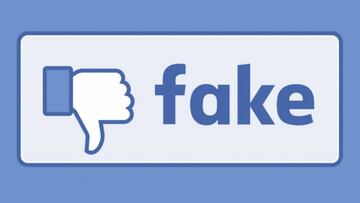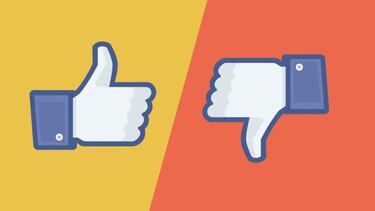Facebook publishes fake news in paid, online advertising
False news and links to dubious web sites. Spam publicity is frequently seen on the social media platform, in spite of their claims to be battling against fake news.

The combination of false news and internet is a toxic mix - especially for those who are unable to see through the untruths, or those who are new to the web and believe everything they read online. Sadly, that was demonstrated only recently in India, where since May there have been 12 murders as a result of fake news spread on WhatsApp messages.

Plague of Fake News
Perhaps the social media service to have been most affected by fake news is Facebook, who in 2016 were unable to prevent a group of Russian hackers from destabilizing the North American presidential elections - Facebook became filled with false news stories aimed at deceiving the voting public about candidates and their political parties. Conscious of the problem, Facebook decided to make a concerted effort to battle against Fake News appearing on their site.
At the start of 2017, to stop fake news from impacting on the French elections, Facebook formed an alliance with eight major news organizations, including Le Monde and AFP (Agence France-Presse) in a bid to eliminate all false information during the election campaign in April, by employing a system of reports and content analysis reported by leading journalists.
Fast forward to August this year, the Washington Post reported that Mark Zuckerberg's tech company had launched an internal, points-scoring system which it had not made public. Facebook had started using a new tool to rate users based on trustworthiness - but without their knowledge. The social networking site continues, apparently, to trust its vast user base to help them flagging false news stories but they need to know which users can be trusted and which might be lying.

Fake news in paid adverts
It's clear that Facebook has declared war on fake, false news. But if that's the case, and if fake news is so damaging, why does it continue to allow publicity ads which have been paid for and which feature false information, to appear on its site?
In a random test which we conducted on our own Facebook page, the advert shown below appeared. Facebook provides publicity space as a service for millions of businesses worldwide, so what’s the problem? As you can see the title of the advert is: ‘The Fastest Computer Chip on the Market”, which tells us it is a tech-based company, immediately below, it is marked as 'Publicity'.
Related stories
So what is the advert all about? It is nothing to do with computer technology; it is in fact, an erotic video. It shows a ‘sex tape’ purportedly featuring Spanish actors Javier Bardem and Penélope Cruz. Beneath, there is a headline and even a comment allegedly by Bardem; there is also a link to a webpage: Togetherwearesimple.com, which when we clicked on the link and entered the site, it showed four articles on food and well-being – nothing about sex or technology. The web site has nothing to do with the news item shown, so we can assume it is clickbait.

On the one hand it is a Facebook ad which someone has paid for to give it maximum exposure on the social media service. But it is also an advert designed to trick users and on top of that, a fake news story - seeing as no sex tape of Bardem and Cruz even exists – nor has Bardem made any declarations relating to one. This is a random ad which appears on opening Facebook. The question is, why is a social media service like Facebook, who seem to intent on eliminating all trace of fake news on their platform, willing to allow someone to buy advertising space to promote fake news? There is no ad blocking facility to control these adverts, or is it that Facebook only censors the articles which appear on its site and not advertising?